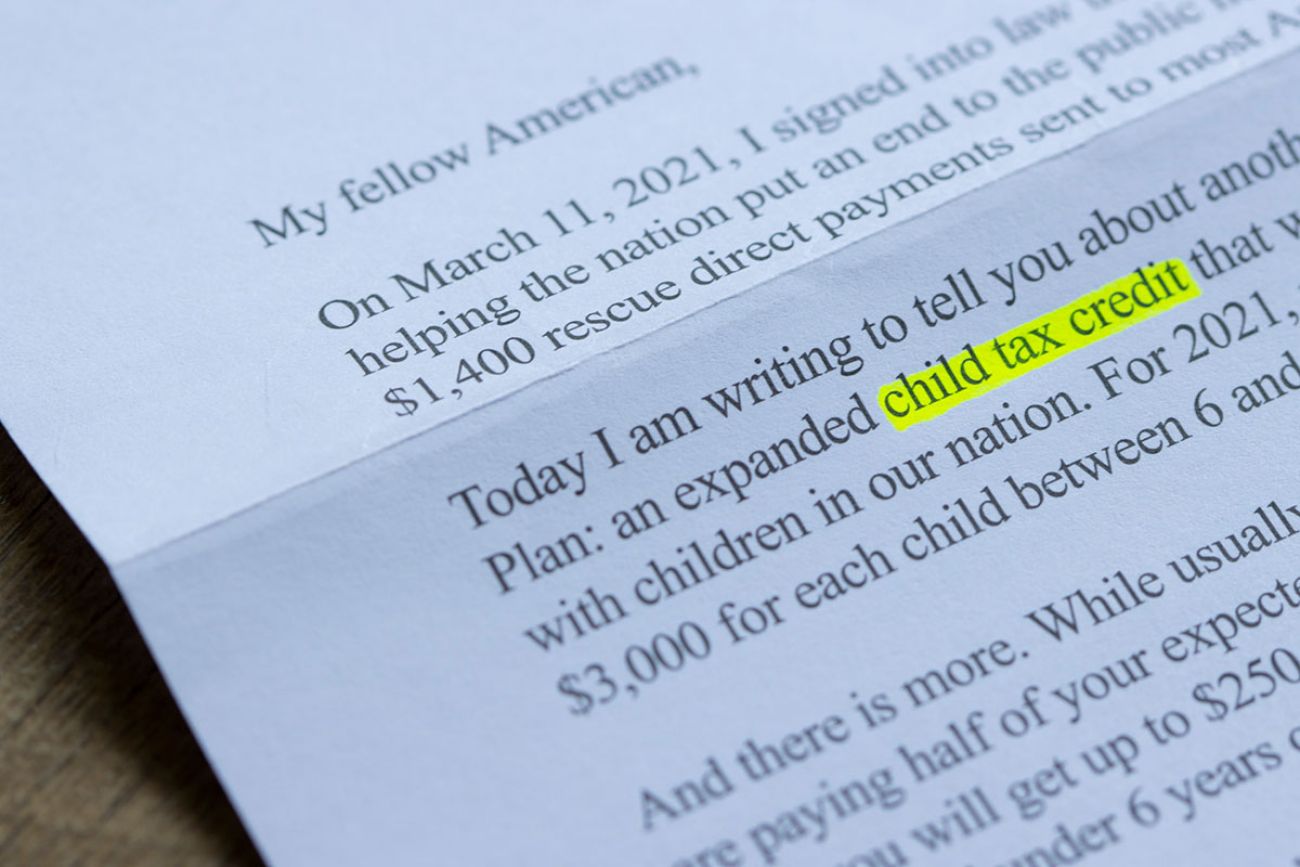End of fed child tax credit expansion risks more Michigan kids in poverty

LANSING — The expansion of a federal tax credit to low-income families during the pandemic lifted more than half a million Michigan children out of poverty, according to the Michigan League for Public Policy.
The expansion ended at the close of 2022, and advocates worry this will put children at risk of falling back into poverty.
The child tax credit expansion was part of the American Rescue Plan Act spurred by the coronavirus pandemic.
Related:
- As Michigan students struggle, report urges fair funding to reverse slide
- Ann Arbor Public Schools mask mandate relieves some, frustrates others
- More options for cheaper college if Michigan students fill out free form
“As advocates for children, we were disappointed to see it end,” said Matt Gillard, the president and chief executive officer of Michigan’s Children.
The child tax credit was originally aimed at working parents paying over $2,000 in taxes yearly but was greatly expanded during the pandemic.
Before the 2021 expansion, people working the lowest-income jobs were not eligible for the credit, said Monique Stanton, the chief executive officer for the League for Public Policy.
“There was a flaw in the plan that was unfair,” Stanton said. “Because people working the lowest-income jobs did not pay the $2,000 in taxes yearly, they were ineligible for the $2,000 tax credit.”
The maximum credit expanded from $2,000 to $3,000 per child for those over the age of 6. For younger children, it expanded to $3,600. The age limit was raised from 16 to 17, the earnings requirement was removed and the credits were fully refundable.
The expansion made the credit available to parents working lower-income jobs or not working.
That made critics concerned that people were refusing to work but still getting the money, Gillard said.
“This is not true, and there’s many reasons why a person is unable to work,” Gillard said. “As for the assumption that people aren’t spending this money responsibly, we saw the majority of people spent it on necessities, like healthy food they might not have been able to afford before or new clothes for school.”
U.S. Sens. Mike Lee, R-Utah, and Marco Rubio, R-Florida, said they support more money going to families with parents who are working, but not for those who are not.
“Congress should expand the child tax credit without undercutting the responsibility of parents to work to provide for their families,” the senators said in a joint statement.
Gillard and Stanton said the expanded child tax credit had an especially positive impact on children in rural areas.
“One in four children in rural Michigan benefited by expanding the tax credit,” Stanton said. “If the expansion ends, these children will be the most impacted.”
According to Gillard, rural families often have added costs because of where they live that residents of more urban areas don’t have.
“Transportation is easily the biggest cost for families in rural areas,” Gillard said. “There’s rarely public transportation, and places people need to go are often spread out.”
Twelve states have passed their own state child tax credits that are independent of the federal credit, according to the National Conference of State Legislatures. Michigan is not one of them.
A state child tax credit is either a fixed amount or a percentage of the federal child tax credit. The fixed limit for state child tax credits ranges from $75 to $1,000. The percentage for state child tax credits ranges from 5 percent to 33 percent of the federal credit.
Advocates and legislators in Michigan have been pushing for another form of state tax credits: the earned income tax credit. Calls have been made to increase it from 6 percent to 20 percent, or even 30 percent of a person’s income, Stanton said.
The earned income tax credit helps low- to moderate-income people get a tax break, according to the Internal Revenue Service. That can reduce the amount of taxes owed and possibly increase tax refunds. The amount increases if a person has children or other dependents.
“We’re in favor of the 30 percent earned income tax credit,” Stanton said. “This would be a huge increase in the amount of income a Michigan family has access to, and will benefit our children.”
Sarah Atwood, a junior at Michigan State University, writes for the Capital News Service.
See what new members are saying about why they donated to Bridge Michigan:
- “In order for this information to be accurate and unbiased it must be underwritten by its readers, not by special interests.” - Larry S.
- “Not many other media sources report on the topics Bridge does.” - Susan B.
- “Your journalism is outstanding and rare these days.” - Mark S.
If you want to ensure the future of nonpartisan, nonprofit Michigan journalism, please become a member today. You, too, will be asked why you donated and maybe we'll feature your quote next time!




